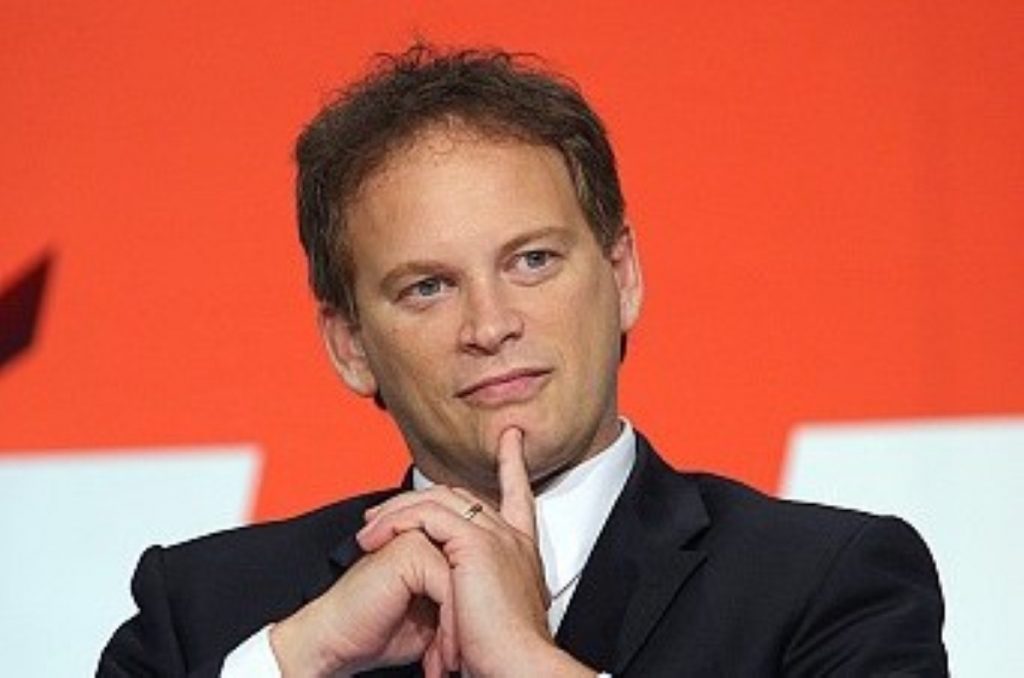Grant Shapps’ attack on the BBC is an act of bare-faced political thuggery
Grant Shapps is usually only noticeable for the extent of his banality, but his attack on the BBC yesterday marked a new low in government efforts to clamp down on critical reporting. It was bare-faced political thuggery, an explicit effort to get the corporation to make its coverage more favourable to the government.
The most remarkable element of Shapps' attack was the fact that it came from him at all. Usually, the government attack on the BBC comes in the form of an intervention from whoever is media secretary. Labour and the Tories have been equally squalid in this regard. But yesterday's attack marked a worrying new strategy. It came from the Tory party chairman himself.
"People pay their licence fee in this country because people believe that we should have public service broadcast programming," Shapps told the Sunday Telegraph.
"Of course, there are lots of different ways you could do that. I would also say that £145.50 is quite a lot to pay for everyone in the country who has a TV. It is too much if we don't see the kind of reforms that all public organisations are used to that the BBC isn't having to engage with as much as it could do."


Ignore for a moment the painful ugliness of Shapps' use of language. Note instead the way a Conservative party chairman is making an explicit threat to the BBC to strip it of its rights to the licence fee when the charter renewal negotiations begin in 2016.
The timing is exquisite. Shapps' threat comes 18 months before the general election, just as media outlets start to ramp up their political coverage. There is no misunderstanding his message: give the Conservatives more sympathetic coverage or we'll have our revenge after the election.
And what kind of coverage might the Tory party chairman prefer? Uncritical reporting which doesn't ask tough questions.
Shapps takes the remarkable step of singling out a journalist – respected BBC home affairs editor Mark Easton – for criticism. It's a move which would not be out of place in Mugabe's Zimbabwe. All Shapps needs is a band of men with clubs and a more commanding posture.
"I do think there is [a possibility of institutional bias], possibly with the particular journalist, but also there is an editorial question for the BBC about applying fairness in both directions," he said. "That also is a question of credibility for the organisation."
Shapps then goes on to cite a report on a European Commission study into benefit tourism as "wrong".
Shapps' attack on the European Commission report is part of a protracted Sunday Telegraph effort to paper over its own failings in reporting a European Commission report into benefit tourism.
The European Commission found there was no evidence of such a phenomenon. Its attempt to dispel some of the inaccurate reporting around European migration was met – with an irony we must grudgingly respect – by a Sunday Telegraph headline about 600,000 unemployed EU migrants living in the UK, at a cost of £1.5 billion to the NHS alone.
It was highly misleading. That figure included pensioners, carers, spouses and partners, students and schoolchildren over the age of 15. Many of these people would have paid into the system.
The BBC responded by reporting the research. It said, correctly, that the report found jobless migrants from different parts of the EU made up a very small share of those claiming benefits. Easton interviewed Poles at a cultural centre in west London who said they had never met anyone who came to the UK simply to claim benefits, a view that corresponds to extensive research on the subject by numerous agencies. He mentioned that the Commission asked the UK government for evidence of benefit tourism three years ago and was not provided with any. And he reported that a European Commission spokesperson branded the Sunday Telegraph report a "gross and totally irresponsible misrepresentation of the facts".
Two week later and Shapps is giving his interview attacking the BBC to… the Sunday Telegraph. Who'd have thought?
Shapps does not mention Andrew Neill, or Nick Robinson, or Robert Peston or John Humphrys, or any of the other leading BBC political correspondents who comes from a firmly right-of-centre background. These reporters do a fine job of reporting disinterestedly and impartially on the stories of the day, as does Easton, whose employers have covered more than their fair share of Migration Watch reports in the past.
This is not about institutional bias. It is an explicit attack on the integrity of the public broadcaster – a warning for it not to pry into the half-truths and falsehoods which government policy is increasingly built on.
The rest of Shapps' attack is scattergun. He attacks the BBC for not recognising that Jimmy Salvile was a "predatory sex offender", for instance, yet makes no comment on Margaret Thatcher's repeated efforts to have him knighted, despite the protests of her aides about his "strange and complex" personality.
But Shapps' finest moment, for sheer outrageous hypocrisy, comes when he berates the BBC's lack of "transparency".
This, it's worth remembering, is the same Grant Shapps who posed as "multi-million-dollar web marketer" Michael Green at an internet conference in a Las Vegas casino in order to promote his work as a self-help guru. It's the same Grant Shapps who told voters he was born in London at one election and born in Hertfordshire at another, the same Grant Shapps who admitted editing his own Wikipedia entry.
Evidently the only thing Shapps ever excelled at, outside of his literary fiction, is the length he will go to to shut down an independent BBC.












